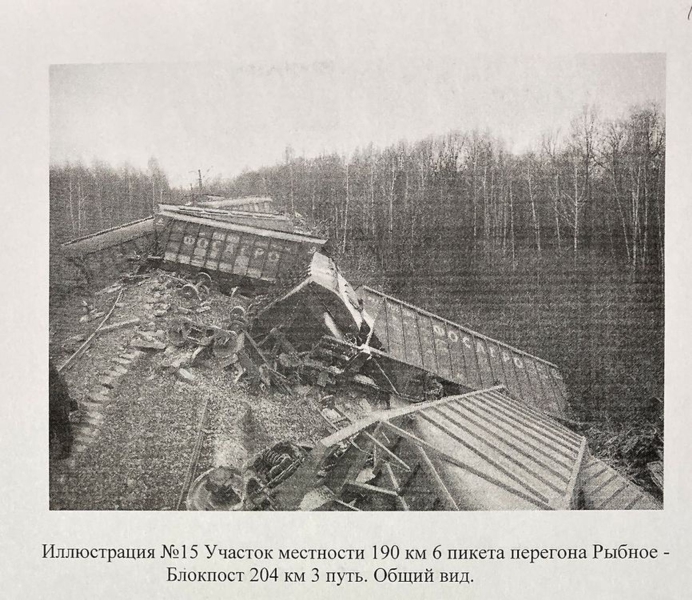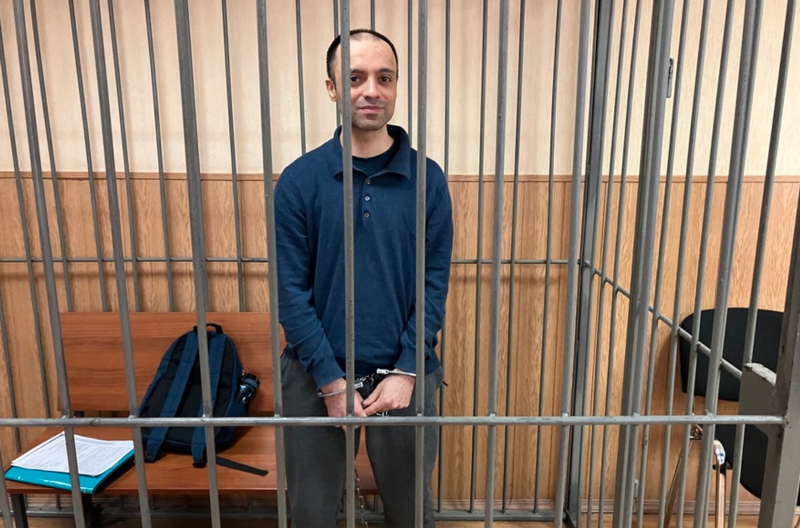Photo: Mediazona
A Russian military court has sentenced Ruslan Sidiki, a dual citizen of Russia and Italy, to 29 years in prison for carrying out sabotage operations against Russian military infrastructure. Judge Oleg Shishov of the 2nd Western District Military Court delivered the verdict at an off-site session in the city of Ryazan. Sidiki was found guilty of committing a terrorist act, receiving terrorist training, and illegally handling explosives. Sidiki is set to spend 9 years in prison, followed by 20 years in a strict-regime (high-security) penal colony, a source in the courtroom told The Insider.
Sidiki had carried out two attacks in 2023. The first took place in the summer, when he attempted to strike the Dyagilevo military airfield near his home in the Ryazan Region using drones. He later explained that the sound of military aircraft overhead coincided with Russian strikes on Ukraine, which influenced his choice of target. Of the four drones he had prepared, only one managed to take off, and it caused only minor damage to the runway. The Russian warplanes, which had been the intended targets, were left unscathed. Despite the attack, authorities failed to identify or apprehend Sidiki at the time.
The second act of sabotage occurred in November 2023, when Sidiki planted explosives on a military railway line, causing 19 freight cars to derail. He said this line was used to transport fuel and equipment to Russian forces fighting in Ukraine. The Insider covered that incident and reconstructed the story of law enforcement’s month-long manhunt for Sidiki in a recent piece.
In Russia, a prison (тюрьма, «tyurma») is a high-security incarceration facility with a cell-based system, similar to Western-style maximum security prisons. It is used only for certain categories of convicts, such as those convicted of especially serious crimes (like terrorism and murder).
Prisons hold inmates in locked cells with highly restricted movement. A penal colony operates on a barracks-based system where inmates live in dormitories and are expected to perform labor as part of their sentence.

In his final statement to the court, Sidiki said his actions were intended to hinder Russia’s war effort in Ukraine:
“My target was Russian military equipment and the logistical chains used to transport it and its fuel. My aim was to make it harder for Russia to conduct military operations against Ukraine… I chose the targets myself: the aircraft parking area was attacked with the intent to destroy military planes. The train bombing was meant to disable the rail line I had identified as being used to move military equipment.
I want to stress that I monitored train traffic on the track I sabotaged and confirmed that no passenger trains used it. As an extra precaution, I maintained visual contact before detonation. If I were indifferent to human life, I could have derailed a train without being physically present.
The inability to influence the authorities through peaceful means — and the criminal persecution of those who oppose state policy — leads some people to leave the country, while others stay and take action.”
In Russia, a prison (тюрьма, «tyurma») is a high-security incarceration facility with a cell-based system, similar to Western-style maximum security prisons. It is used only for certain categories of convicts, such as those convicted of especially serious crimes (like terrorism and murder).
Prisons hold inmates in locked cells with highly restricted movement. A penal colony operates on a barracks-based system where inmates live in dormitories and are expected to perform labor as part of their sentence.
Sidiki also condemned the torture he said he was subjected to after his arrest, calling it a “deeply dishonorable act.” He emphasized that responsibility lies not only with those who physically carried it out, but also with those who knew about the abuse, helped conceal it, or failed to respond to his complaints.
Sidiki’s lawyer, Igor Popovsky, argued during the trial that the prosecution’s narrative didn’t match the actual circumstances. He insisted that his client’s actions should not be classified as terrorism, but rather as acts of sabotage:
“Sidiki’s motivation for the actions he is accused of was his opposition to the so-called ‘special military operation,’ and his intent to harm only the Armed Forces of the Russian Federation or military and transport infrastructure used to move military cargo. He confirmed this repeatedly during interrogations.”
Popovsky also referenced the Geneva Convention’s provisions on the Treatment of Prisoners of War, stating that Sidiki should be recognized as a lawful combatant and POW. He has previously argued that this classification could allow Sidiki to be considered for a future prisoner exchange.
Franco Fausto Salamena, assistant to the Italian consul in Russia, was present in the courtroom during the closing arguments and sentencing,
In Russia, a prison (тюрьма, «tyurma») is a high-security incarceration facility with a cell-based system, similar to Western-style maximum security prisons. It is used only for certain categories of convicts, such as those convicted of especially serious crimes (like terrorism and murder).
Prisons hold inmates in locked cells with highly restricted movement. A penal colony operates on a barracks-based system where inmates live in dormitories and are expected to perform labor as part of their sentence.

